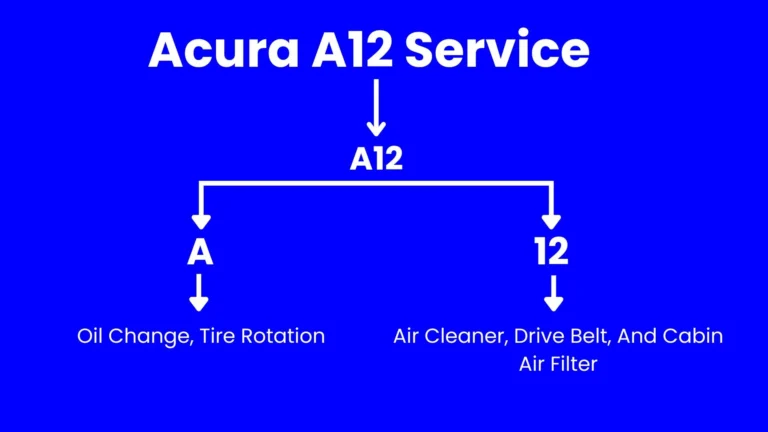Signs & Symptoms Of A Bad Fuel Injector | Identify And Fix

Fuel injectors are crucial components in the fuel system that deliver the fuel to the engine’s combustion chambers to ensure smooth and optimal engine performance. When a fuel injector becomes bad or dirty, it can lead to several potential problems in the fuel system and complete engine failure.
Symptoms of a bad fuel injector help you diagnose the issue and prevent it from rising as a critical problem that can cause expensive repair or potential damage. Properly understanding the signs of a bad fuel injector also urges you to take quick action after encountering any symptoms that point toward a faulty injector.
As an experienced certified technician, I will assist you in understanding the most prominent bad fuel injector symptoms, how to prevent these issues from arising, and what cost you can expect to replace a bad fuel injector if you need to change it.
What is a fuel injector?
Before moving forward, let’s briefly overview the fuel injector and its role in the fuel system. In modern vehicles, a fuel injector’s function is to atomize and inject the fuel into the engine’s combustion chamber through a special nozzle used to spray the fuel. It delivers the right amount of fuel to the combustion chamber at the exact time to optimize the engine performance and improve fuel efficiency.
Symptoms of a bad fuel injector
Here’s the breakdown of the common symptoms you can look for to ensure whether the fuel injector is bad and needs quick action.
- Increased fuel consumption
- Check engine light illumination
- Engine misfires
- Smell of fuel
- Reduced engine performance
- Hard engine starting
- Excessive exhaust smoke
- Rough idling
Increased fuel consumption
When a fuel injector becomes faulty or bad, it will deliver excessive fuel to the combustion chamber, leading to poor fuel economy and increased fuel consumption. Suppose you notice that the vehicle consumes more fuel than usual and find a sudden decrease in the miles per gallon (MPG). In that case, it indicates that the fuel injector is not working correctly, causing the engine to burn more fuel than necessary.
Check engine light
The illumination of the check engine light on the dashboard is another sign of a bad fuel injector, which indicates that the fuel injector is malfunctioning and delivering too much or insufficient fuel to the engine’s combustion chamber. However, the check engine light can turn on due to several issues. Still, to ensure it’s due to the fuel injector, you can conduct a diagnostics scan with the help of the OBD-II scanner tool to find error codes related to the injector.
Engine misfires
Engine misfires are the most prominent and relative problem, directly pointing to fuel injector problems. When the fuel injector becomes clogged or dirty, it will deliver insufficient fuel, causing difficulty for the engine’s cylinder to ignite. Due to low fuel, the air-fuel ratio becomes imbalanced, leading to cylinder failure to ignite properly. You might notice sudden stalling, rough idling, jerking, and stumbling sensations while driving the vehicle.
Smell of fuel
If you notice a strong smell of fuel inside the cabin or around the vehicle while driving, it indicates a fuel injector leakage that can lead to a fire risk and severe damage to the fuel system. Additionally, promptly addressing fuel leaks is significant in overcoming fuel wastage and protecting the vehicle from fire risks that are also dangerous for drivers and passengers.
Reduced engine performance
Another sign of a bad fuel injector is the noticeable drop in the engine performance. Consistent fuel injection into the combustion chamber is significant for optimal engine performance and smooth working. When the fuel injector malfunctions, the engine will not get the correct amount of fuel from the injector, which results in a lack of power, sluggish acceleration, and stalling.
Hard starting of the vehicle
If you need help starting the engine in cold weather or after sitting for a while, it can be caused by the dirty fuel injector failing to inject the fuel required to start and ignite. Additionally, a balanced air-to-fuel ratio depends upon the fuel injector, and if it’s clogged, it will affect the balance and lead to the engine’s hard starting.
Excessive exhaust smoke
If you’re experiencing excessive black or blue smoke in the exhaust system, there’s a possibility that the dirty fuel injector is the culprit behind it. A bad fuel injector burns excessive fuel, producing poor emissions and black smoke. You must visit an expert mechanic to diagnose and solve the issue ASAP.
Rough idling
Rough idling or stalling is another common sign of a bad fuel injector. It usually occurs when the engine needs to receive the fuel needed for efficient performance. When the fuel injector is clogged, dirty, or malfunctioning, it fails to inject fuel and causes the engine to stall, shaky, and unstable while driving the car.
if you want to explore the symptoms of a bad fuel injector in video form, you can watch the below video containing the above explanation of symptoms.
You might also like:
https://sinceremechanic.com/clogged-radiator-symptoms/
https://sinceremechanic.com/tire-pressure-monitor-fault/
How to Prevent Fuel Injector Clogging?
After understanding the symptoms of a bad fuel injector, you must also explore how to protect your vehicle from fuel injector-related problems. For this purpose, you must follow the guidelines below to prevent the fuel injector from going bad and becoming clogged.
Use of fuel injector cleaner
When your vehicle engine is misfiring, stalling, jerking, vibrating, and sputtering, it’s time to use a fuel injector cleaner that will break down and remove the carbon deposits that make the fuel injector clogged or dirty. Fuel additives keep the injector clean and free from clogging, which helps deliver fuel consistently without disruptions.
However, many fuel injector cleaners available online can be purchased easily. You must buy high-quality fuel additives and use them while performing regular maintenance to keep the fuel system in good working condition.
Regular fuel filter replacement
Regularly replacing old or dirty fuel filters is crucial to keep the fuel injector safe from clogging. A fuel filter removes the dust, dirt, debris, and rust particles from the fuel and delivers clean fuel that helps the fuel system function efficiently. You can perform filter replacement while using the scheduled maintenance service recommended by the manufacturer.
Regular engine maintenance
Following regular engine services such as air & fuel filter replacement, oil changes, and fluid top-ups keeps the engine condition optimal and improves its efficiency to perform. It also fixes unknown early-stage issues that can impact engine health if not fixed promptly.
Use high-quality fuel
Always use high-quality fuel from reputable stations because low-quality fuel may contain contaminants that can make the fuel injector clogged and dirty. Using premium fuels will prevent the injector from becoming bad because they contain detergents that keep the fuel system clean and well-maintained.
Regularly Inspect and Replace Spark Plugs
If the spark plug is worn out or faulty, prompt replacement is necessary to keep the fuel injector safe from carbon deposits. Ensure to properly inspect the spark plug while performing vehicle maintenance and replace it if required.
Replacement Cost of a Bad Fuel Injector
The cost to replace a bad fuel injector depends upon several factors such as specific model & year, issue condition, geographic location, and shop, whether a dealership or non-dealership shop. However, the table below contains the average cost of one or all injector replacement, parts cost, and labor costs you can expect to pay and will help you plan your budget accordingly.
| Replacement Aspects | Average Cost | Labor Cost (Per Injector) | Parts Cost (Per Injector) |
|---|---|---|---|
| Single fuel injector | $350-$600 | $200-$300 | $150-$300 |
| All fuel injectors replacement | $1200-$3600 for (4-6 cylinders) |
- Parts cost: The cost of parts depends upon whether you’re using OEM (original equipment manufacturer) or after-market parts. OEM parts cost more than aftermarket parts, which are officially recommended and perform well.
- Labor cost: The labor cost depends upon the complexity of the issue and the time required to fix, repair, or replace the injectors. However, the dealership shops charge more than independent shops.
Conclusion
A bad fuel injector can cause several potential issues, from increased fuel consumption to rough and stalling engine performance. The symptoms of a bad fuel injector help you detect the issue early and prevent costly repair. After understanding the signs of a bad fuel injector and following the guidelines to prevent clogged fuel injector symptoms, you can keep the vehicle in optimal performance and improve its efficiency.
However, you will be charged less if one injector is dirty and needs repair or cleaning. Alternatively, if you need to replace or repair all the injectors, it will be quite very expensive. Seeking professional help while encountering the dirty fuel injector symptoms is a wise decision that can save you time and money.
FAQ – Frequently Asked Questions
What are the symptoms of a bad fuel injector?
The most common symptoms of a bad fuel injector include poor fuel economy, check engine light illumination, engine misfires, fuel odor, reduction in engine performance, rough idling, difficulty starting the engine, and dancing RPM needle.
Can a Bad Fuel Injector Damage the Engine?
A bad fuel injector can cause engine misfires, rough idling, stalling, overheating, and internal damage, potentially leading to engine failure if not fixed.
What Happens When a Fuel Injector Goes Bad?
When a fuel injector goes bad, it can disrupt the engine’s ability to receive the proper amount of fuel, leading to poor fuel delivery, causing engine misfires, loss of power, increased emissions, rough idling, increased fuel combustion, and potential engine damage.
How do you tell if a diesel injector is bad?
Bad diesel fuel injector symptoms will help you diagnose whether the injector is bad. These bad fuel injector symptoms include rough idling, engine stalling, exhaust smoke, engine misfires, loss of power, or difficulty starting. A knocking noise is also common in diesel engines with bad injectors.
Can I Drive with a Bad Fuel Injector?
Although it’s possible to drive with a clogged fuel injector, ignoring this critical problem is not advised because it can lead to potential engine damage if not addressed promptly.
How Often Should I Clean My Fuel Injectors?
You can clean fuel injectors when the vehicle has covered 30,000 miles, or you can clean injectors during each scheduled maintenance service.
Martin Lee is an ASE-certified mechanic and contributing author at SincereMechanic. He uses his expertise to create captivating articles that align with our content strategy. Using his deep automobile knowledge, he does in-depth research, puts expertise into articles, and makes them very informative. That information ensures our readers receive many valuable insights about the Vehicles.



![Honda B12 Service [Checklist, Cost & What’s Included] 3 honda b12 service](https://sinceremechanic.com/wp-content/uploads/2025/03/honda-b12-service-768x431.webp)

![Honda A123 Service [Checklist, Cost & What's Included] 5 Honda A123 Service](https://sinceremechanic.com/wp-content/uploads/2025/02/Honda-A123-Service-768x431.webp)
